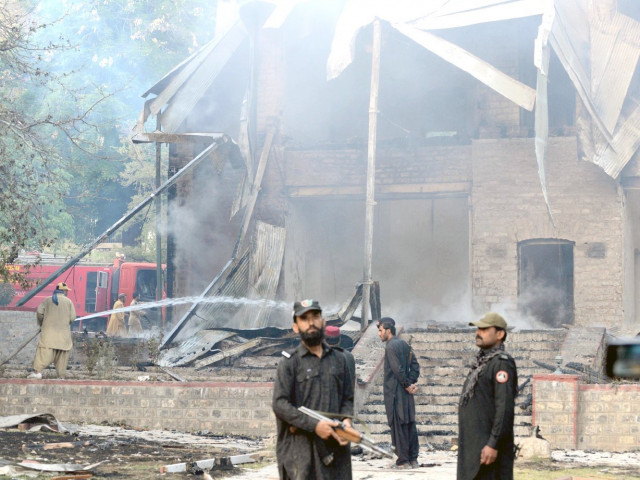Balochistan: Getting it right
Balochistan requires fresh and bold initiatives by the governments in Quetta and Islamabad.

Pakistani security personnel look on as firefighters extinguish the blaze at the last residency of the founder of Pakistan. PHOTO : AFP
The truth is that the security apparatus in Balochistan reports to the civilians in name only. The Supreme Court’s attempts to examine this did not bear fruit, especially on the matter of missing persons. At the same time, the civilians have been unable to develop a consensus on tackling this issue and lack the will to take the initiative. Civilian governments do not invest enough in the capacity of the key ministries and parliamentary committees meant to tackle civil-military relations.
Balochistan requires fresh and bold initiatives by the governments in Quetta and Islamabad. A policy that only has a component of force to deal with the situation will not work. Instead, a political solution to the crisis must be found. The banned militant outfits in the province need to be checked and controlled, for which there needs to be a dialogue between the political parties, as well as the civil-military leadership. The status quo is only fuelling alienation of the Baloch population, which was reflected in the low turnout during the recent elections in the province. The situation won’t improve until the Baloch develop a sense of ownership in the province.
Published in The Express Tribune, June 23rd, 2013.
Like Opinion & Editorial on Facebook, follow @ETOpEd on Twitter to receive all updates on all our daily pieces.



















COMMENTS
Comments are moderated and generally will be posted if they are on-topic and not abusive.
For more information, please see our Comments FAQ